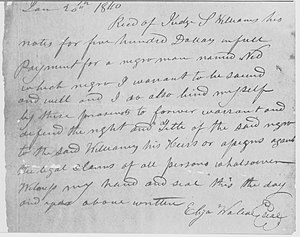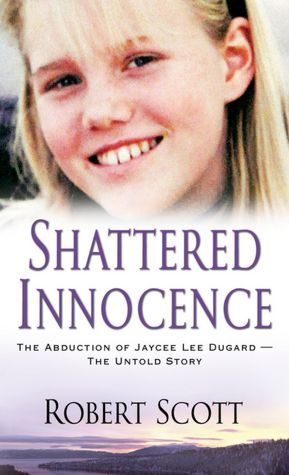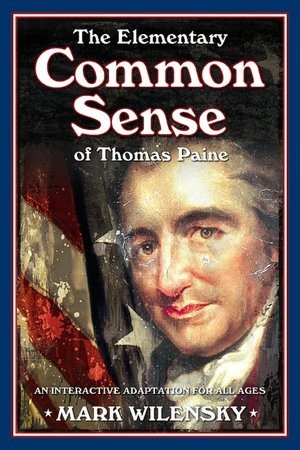
Uncle Tom’s Cabin was written by Harriet Beecher Stowe who was anti-slavery. The book was published in different series from June 5, 1851 through April 1, 1852. http://www.harrietbeecherstowecenter.org/utc/ It was in a weekly newspaper called National Era that was home-based in Washington, D.C. The newspaper where Uncle Tom’s Cabin was being published was anti-slavery. In 1852, the book was broken up into two volumes to what we know as Uncle Tom’s Cabin. During this time period, there were many events that were taking place. One of the main historical events was the Civil War. The war was being fought by the Confederate States of America and the Union. This is a reenactment video how the war was portrayed. http://www.youtube.com/watch?v=EDxrB9-7tHY In this year, Abraham Lincoln was the 16th President and he was able to abolish slavery.
Historically, Uncle Tom’s Cabin was influenced by different slave narratives describing how they were living. Ms. Stowe wanted everyone that she knew to write down what was going on in their life regarding how it felt to be a slave. She felt that if they wrote the narratives, it would give “ first hand accounts as she composed her story." http://www.harrietbeecherstowecenter.org/utc/ The information that was being written made a connection historically. It gave an image to what some, or most slaves were going through at this specific time frame. The importance of the text is to illustrate that some slaves found it hard, “to cope with separation by masters through sale." http://www.ushistory.org/us/27b.asp It makes the historical connection better to understand for those who have not gotten the concept of slavery.
 Working six days out of the week, slaves worked from sunrise to sunset in harsh weather. Depending on some slave owners, “work for a small farm owner who was not doing well could mean not being fed.” http://www.ushistory.org/us/27b.asp The food that the slaves ate would be the leftover food that their owners did not eat. Sometimes it would be worse when they would get slop. Housing conditions for many of the slaves were deplorable. They lived in shacks and had nothing except the cold, hard ground to sleep on. The slaves would sing gospel hymns while they worked in the fields. Here is a link of what slaves would sing in the fields and the explanation of why they would sing. http://www.youtube.com/watch?v=u7ejJPp8wdU It does not give any information on what slaves wore, but from different visual accounts it shows that they wore rags. It emphasizes that what has happened in the past has made a huge outcome on today’s culture and history.
Working six days out of the week, slaves worked from sunrise to sunset in harsh weather. Depending on some slave owners, “work for a small farm owner who was not doing well could mean not being fed.” http://www.ushistory.org/us/27b.asp The food that the slaves ate would be the leftover food that their owners did not eat. Sometimes it would be worse when they would get slop. Housing conditions for many of the slaves were deplorable. They lived in shacks and had nothing except the cold, hard ground to sleep on. The slaves would sing gospel hymns while they worked in the fields. Here is a link of what slaves would sing in the fields and the explanation of why they would sing. http://www.youtube.com/watch?v=u7ejJPp8wdU It does not give any information on what slaves wore, but from different visual accounts it shows that they wore rags. It emphasizes that what has happened in the past has made a huge outcome on today’s culture and history. Writing Uncle Tom’s Cabin opened the eyes of many people who could not understand the concept of slavery. It is shaped by history and time, because in 1852 this was the norm for slaves. The book illustrated that at this time, culturally it was safe to say that many blacks in the south were slaves and there was hardly any way of getting out. In the text, some slaves were not happy leaving their owners and would break down if they were sold off. Based on information in Uncle Tom’s Cabin, if it was written in 2012, there would still not be that much of a difference. Slavery is still going on today not just in African Americans, but in other ethnicities. The book would still have the concept of what the slaves would go through and it might just connect it to this day and time. Although, not a lot of the text would change it would just bring into light what other countries and what America is doing about slavery. It is still a sign of racism and it still goes on as we speak here today. Not only would the effects of slavery be written the same, it would explain that for many people it, “continues to exert its brutal influence in the untold sufferings of millions of everyday folk.” http://library.thinkquest.org/26477/usa3.htm Not only would writing at a different place and time keep some accounts the same, it would open up new untold stories about what people are going through in the midst of slavery as we speak.
Writing Uncle Tom’s Cabin opened the eyes of many people who could not understand the concept of slavery. It is shaped by history and time, because in 1852 this was the norm for slaves. The book illustrated that at this time, culturally it was safe to say that many blacks in the south were slaves and there was hardly any way of getting out. In the text, some slaves were not happy leaving their owners and would break down if they were sold off. Based on information in Uncle Tom’s Cabin, if it was written in 2012, there would still not be that much of a difference. Slavery is still going on today not just in African Americans, but in other ethnicities. The book would still have the concept of what the slaves would go through and it might just connect it to this day and time. Although, not a lot of the text would change it would just bring into light what other countries and what America is doing about slavery. It is still a sign of racism and it still goes on as we speak here today. Not only would the effects of slavery be written the same, it would explain that for many people it, “continues to exert its brutal influence in the untold sufferings of millions of everyday folk.” http://library.thinkquest.org/26477/usa3.htm Not only would writing at a different place and time keep some accounts the same, it would open up new untold stories about what people are going through in the midst of slavery as we speak. 




